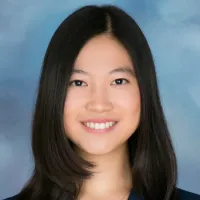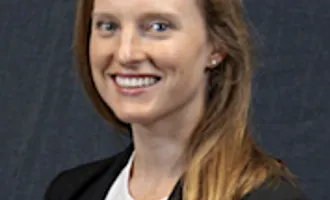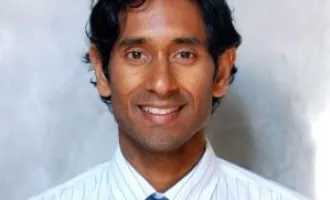
Behind Their Wheels
Fall 2021
“How do you know that a man loves you?”
***
Emmanuel had a firm build and rigid posture.
“I can’t believe you’re making me drive all the way to Pleasanton.”
I uneasily resigned myself to this stranger’s backseat, my half-awake body loosely framed by my crinkly baby blue scrubs. I didn’t want to add to his annoyance. He held my life in his car, at least for the next hour as we rode from San Francisco to my preceptorship. I silently shifted my focus to the window, gazing at the prickly evergreens puckering up toward the crisp cerulean horizon.
“How old are you?”
“Twenty-four,” I answered.
“Are you married?”
“No,” getting a little concerned.
“You should be.”
***
Emmanuel met Daisy in college. She emerged from a rush of students coming out of lecture. She had just immigrated from their shared home country, her colorful clothes and smooth demeanor all strangely familiar to Emmanuel though they had never previously met. Daisy asked him for a tour of campus, and he happily obliged.
They became friends, that is, until Daisy got ticked. He was alone in his apartment, packing for a road trip to Vegas with his girlfriend. Daisy called him. Infuriated, she demanded that he stay back. At the time, Emmanuel and his girlfriend had been fighting every day, but they still stubbornly stayed together. In this moment, something cut through the stubbornness.
“Daisy, do you like me?”
“Yes.” She hung up.
Emmanuel broke up with his girlfriend that weekend, and he started spending more time with Daisy. Hours of talking, movies, long walks. One night, she explained that she was a virgin. She said she was saving herself for her husband.
“What if I will be your husband?”
“If you tried anything, I wouldn’t stop you. I’m just saying that it’s for my husband.”
***
I sat up in the backseat, leaning forward to hear Emmanuel better above the rumble of the engine and the screeching of the wheels against the highway.
He explained that he waited too long to marry Daisy. Like me, he wasn’t thinking about marriage in his twenties; he wanted to work hard and have fun. In fact, he didn’t want to ever get married. Now six months into his job as an Uber driver, he was crouching into his forties with children in single-digit ages still pouncing for his attention. If he had married earlier, he argued, he would have had the energy to take care of them well into their twenties.
“What made you change your mind about marriage?”
“I realized that I wanted someone who could be there for me in my old age.”
Regardless of how much I agreed or disagreed with him, I respected him for his certainty. His certainty about his wife, his family, what mattered to him. He and his wife would fight sometimes, and in his tiredness, he would threaten to leave. He would never leave, he told me. He just had a temper. But she was patient with him.
And so, I entertained the idea of marriage, even though, like him, I didn’t think I’d ever get married. And I wanted some advice.
“How do you know that a man loves you?”
“He doesn’t care about what you do or what you have. When he comes home every day, he’s just excited that you’re there. He just cares that you’re his wife.”
Fall 2020
The meat was locked away in the hot oven for three hours. The giant slab of cow flesh, alive and schlepping around just the day before, transformed into the night’s main dish. Rumberto prepared it himself, sacrificing the cow raised on his own farm, slicing and seasoning the meat, and hauling it into the oven to roast for his family. He loved doing this. His family was truly a village, about 50 people who gathered for special occasions like Easter to eat, drink, dance, and laugh together.
But Rumberto wasn’t with his family when I met him. He was in San Francisco, driving a sedan on a late Friday afternoon, about as lively as the thick gray fog.
During our roundtrip, he did not speak a word on the ride to my friend’s house. To my concern, he was texting on his phone between jerky street turns. On the way back to my place, he commented on how difficult the U-turn in my friend’s neighborhood was, and how the cop had likely seen him take it illegally.
And then, randomly, he began chattering about his family. “Do you want to meet my niece?” I wondered what he could mean, especially given that we were in a pandemic.
“I talk to my family every hour on WhatsApp. I call them and they always answer. Here, let me call Roxana for you!” And in a matter of a few rings, there Roxana was, looking right at me and saying “Hola!” from the comfort of Rumberto’s smartphone. I was still a little nervous that he was on his phone while driving, but I couldn’t help but delight in the opportunity to get to know this man and his family, envisioning myself in the middle of their warm village.
Fall 2019
I was as zen as a five-year old wailing over her lost teddy bear, her favorite teddy bear. So, when this twig-like, teethy, thin-haired old man driving me from San Francisco International Airport to the Inner Sunset told me to chill out, I could barely hear him over my internal wailing.
My mother and I had just landed in town for my medical school interview. I prepared, as most pre-meds do, with the utmost rigor and devotion of a nervous future mother preparing for her first-born child. I reached out to friends and family to get the best advice, then reached out to friends of their friends to get ideas for how to craft some new truth about myself that would be enticing to interviewers. I had a few interviews before this one and edited my outfit, my make-up, my handshake, my answers each time to seem comfortable despite the writhing, scared little child that lay hidden in my chest.
So, when I came to the Bay Area, I was ready. I had my fair share of flights and confidently strode through this foreign airport with my mother—who cringed at large, crowded international airports — to our Uber driver.
She sat in the back, and I boldly planted myself in the front, ready to make conversation.
I made conversation with every Uber driver on the interview trail. I wish I could say that it was because I possessed the social tact of a politician and the charm of a high school homecoming queen. Rather, it was because as a pre-med student, I felt myself to be the very opposite and was in desperate need of some social skills practice in preparation for my interviews. I needed it in low-stakes environments with diverse strangers who, no matter how much they judged me, would never see me again and have little impact on my life. To give myself some credit, I also had been a journalist in college and really did enjoy hearing about other people’s stories, no matter how awkwardly I treaded through the questions that somehow beckoned them to answer. You could say that these conversations were equally born from immediate necessity and innate interest.
Today’s driver had the unwavering hope of a three-year old whose parents, eventually, always gave in to his cries for candy, paired with the steadfastness of someone who had been through the roughest parts of life but recovered well-enough to tell the stories without suffering a mental breakdown partway through. Maybe it was because he had survived that he had so much hope.
As we took a windy road off the freeway exit, surrounded on either side by arboreal mosaics of yellow-green with reddish-brown hints, he explained that the way he had learned to settle in with life was to go along with what was in front of him. He philosophized that life was not about forcing ourselves somewhere, but rather to take the paths meant for us. And he wholeheartedly believed that by riding with the wind like little leaves, that we would all end up where we should, that it would all work out. He explained this to me all in the context of knowing that I had been in town for a medical school interview.
Aware that I had spent the last six months trying to force an acceptance into a University of Some Significance, I begrudgingly smiled and nodded as he explained his theories. However, somewhere inside, the kicking child in my chest stopped kicking, and resigned herself to only small whimpers. Maybe there was a calming truth in his words, or at least, some remedy-like character to it.



